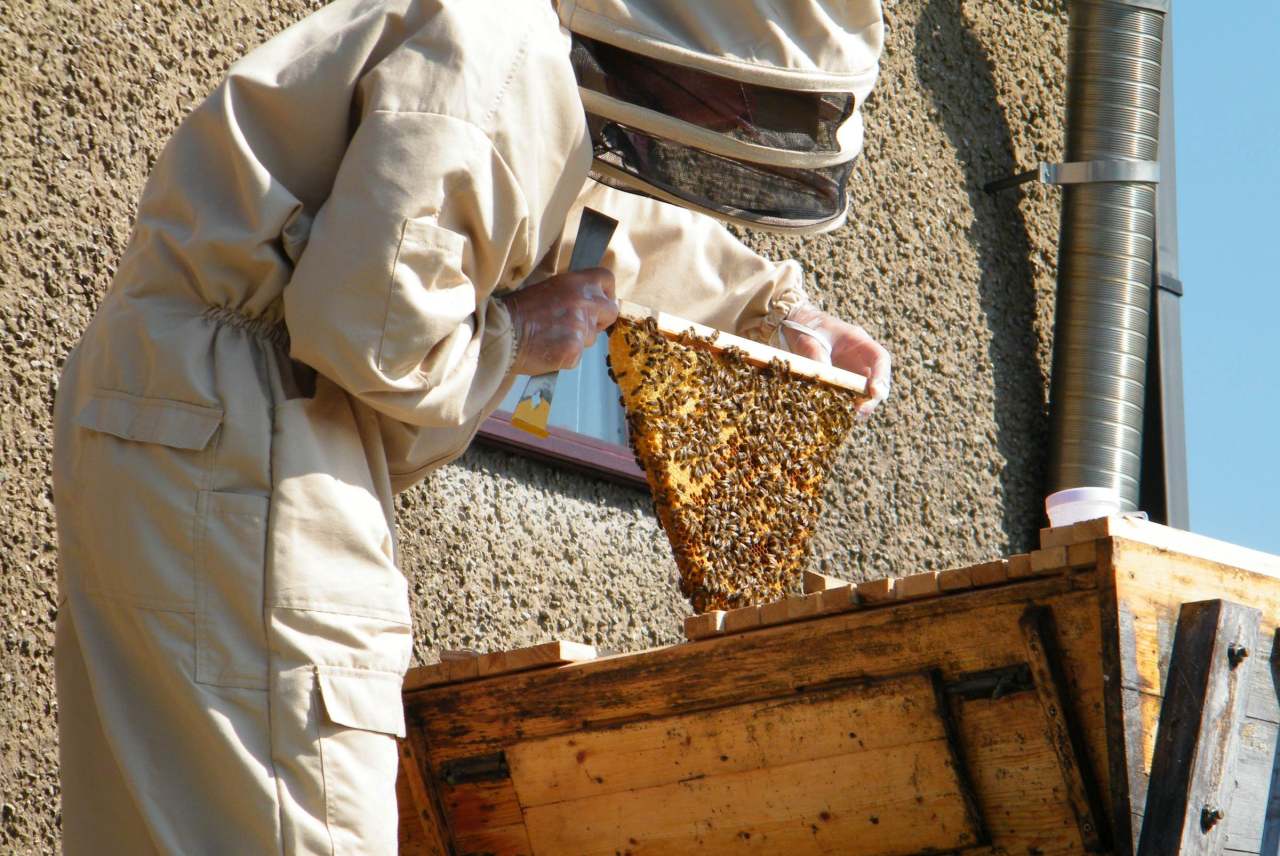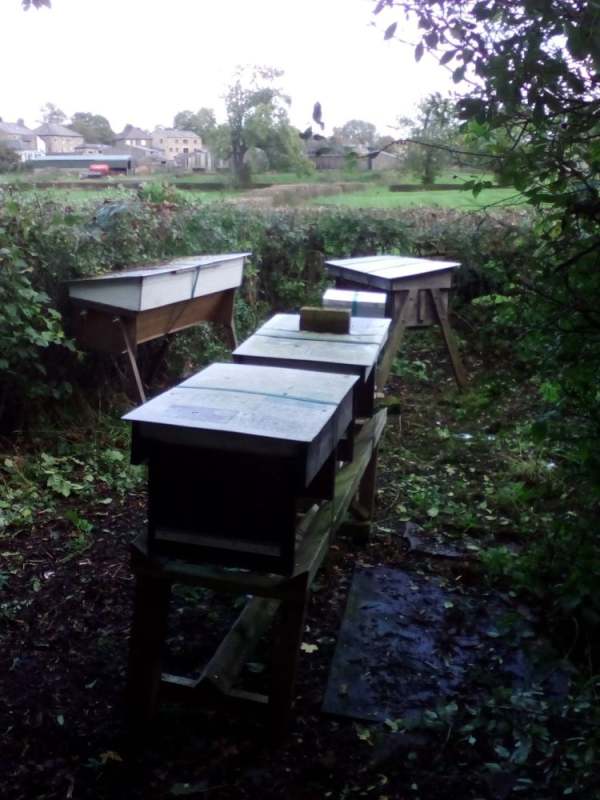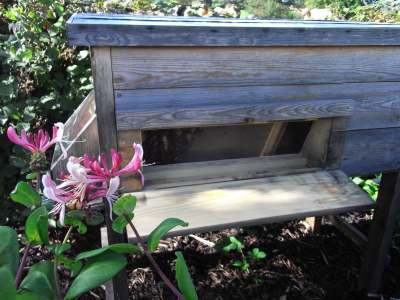Some practices within conventional beekeeping are said to cause stress for bees, could you talk more about this?
John: If you imagine bees in a hollow tree, they will settle in the hollow and they start building comb at the top and build down and down and down.
In a conventional hive, beekeepers will start them in a box and when they want to expand the hive, they will put an empty box on the top. There should never be anything above them, and so the bees immediately go up there and furiously start building comb and that becomes their main focus even to the point of not foraging as much as they could. They then start filling the empty comb with nectar to produce honey.
Part of the system there is they use a queen excluder between the two boxes so they contain the queen in the bottom box so there are no eggs laid where they want just honey. So they are confining the brood nest if you like. So both of those are a stress on the bees that they wouldn’t normally have.
Then you get to the end of the season when beekeepers take the honey away. The bees have spent the whole summer gathering nectar to produce honey to feed their future sisters through the winter and then all of a sudden it’s all taken away.
Sometimes it is not all taken away – a lot of beekeepers take some honey away and leave some for the bees to go through winter. But some take all the honey away and feed them with sugar water instead.
And then you get into opening the hive once a week to check queen cells to stop them from swarming. You alter the humidity of the nest, the nest scent – everything going on in their changes. Beekeepers get stung when they take the hive apart- nearly the only time. So that is obviously a stress to them – they are seeing an invasion into their homes. And then you have the treatments – acetic acids, oxalic acids, moving around for pollination, queen clipping, drone brood removal etc.
How can natural beekeeping support healthier bee populations if at all?
John: If you look at varroa mite conventional beekeepers are killing off all the mites. The best treatments they have are 97% successful I think it is.
What natural beekeeping is trying to do is to support the bees while they learn to co-exist. The varroa mite naturally co-exists with the Asian honey bee- they have co-evolved- and they have strategies that they use to help them cope.
They swarm more often for instance and they move around more so they have more brood breaks where there is no brood produced. The varroa mite only breeds in the brood. So by having more brood breaks, they control the population.
By breeding from bees that survive naturally, you are also ‘selecting’ for all the traits that include better grooming techniques for the bees, a willingness to destroy larvae that are infected badly. So they are learning to naturally look after themselves. And my end game I think as a natural beekeeper is to not have to keep bees. Which probably sounds really stupid. But to know that bees can find hollows in trees or roof spaces or where ever, and build a nest and survive.
We have populations that are surviving in our town. There is a shop called Bentham Imaging. You could stand across the road, and look at the front of the shop. Across the top where it says ‘Bentham Imaging’ look at the left-hand side- there is a rusty old alarm bell on there – and on a warm day you can see bees flying in and out of there. They have been there for about five years.
If someone wanted to switch to more natural beekeeping, what advice would you give them?
Sue: The first thing I would say is, just forget about honey production. Because conventional beekeepers seem to be focused on this.
Honey is a bonus, not a reason for doing it. I treasure it so much because it is not a given- it happens maybe once every five years.
Start watching the bees, see what the bees do and respect what they do. Start observing the changes, the different types of pollen going in and out, the different movements of the bees, and not get too hung up with interfering with what they want to do.
If readers want to buy honey from a beekeeper who is taking a more bee-centric approach, how can they access this sort of honey?
John: The first thing is: don't buy it from a supermarket. If you look at honey you buy from a supermarket, generally, it will say produce ‘of EU and other countries’. 'Other countries' is generally China. Next to that, then find a local beekeeper. If buying from their doorstep ask them questions about how they keep bees. Talk to the beekeeper.
Sue: There is currently no labelling that will help you in regard to information about how honey is produced. Other than being able to ask the beekeeper, I guess working on the basis that small is often more beautiful is a useful approach - the scale of the operation is probably going to be more conducive to more respectful beekeeping, but not necessarily.
I think people need to value honey much more than they do. Because when its a fairly cheap commercial commodity that you can buy in a supermarket, it's just supporting those large commercial operations in China, or America or wherever - it devalues the product itself.



